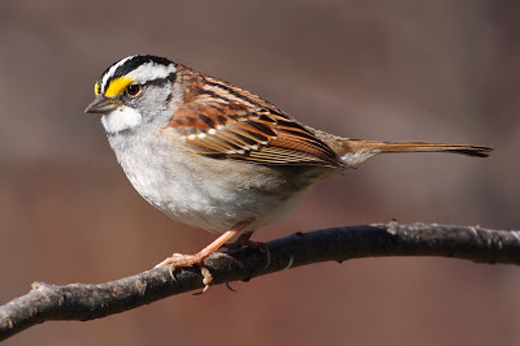A unique study of the white-throated sparrow has identified a biological pathway connecting variation in the birds' aggression and parenting behaviors in the wild to variation in their genome.
The Proceedings of the National Academy of Sciences (PNAS) is publishing the results of the experiments, conducted by the lab of neuroscientist Donna Maney in Emory University's Department of Psychology.
The research, which comprised behavioral observations of the study subjects in the field and laboratory analyses of their gene expression in the brain, showed that variation in the expression of the estrogen receptor alpha (ER-alpha) gene strongly predicts the birds' behavior.
"We believe this is the most comprehensive study yet of how the rearrangement of a chromosome affects social behavior in a vertebrate," says Brent Horton, a post-doctoral fellow in the Maney lab and lead author of the study. "So much of the process of genetic discovery is restricted behind closed doors in a laboratory. But our study began in the woods, where we first observed the social behaviors of the actual subjects of our experiments in their natural setting. The results provide valuable insight into the mechanistic basis of aggression and parenting in all vertebrates, including humans."
Such integrated studies "are exceedingly rare," Horton adds, "because they require such a variety of resources, expertise and well-balanced collaboration."
In addition to Horton and Maney, the principal investigators included Eric Ortlund, a biochemist and an expert in the ER-alpha gene at the Emory School of Medicine; and James Thomas, a human geneticist who was formerly with Emory and now works at the National Institutes of Health. Co-authors include William Hudson, a graduate fellow in Ortland's lab; Wendy Zinzow-Kramer, a post-doc in the Maney lab; Sandra Shirk, a research associate; and Emily Young, an undergraduate student of biology at Georgia Tech.

